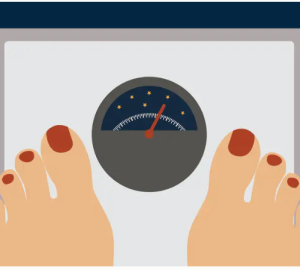People are more likely to suffer from chronic insomnia during Ramadan, which again, is commonly described as trouble falling asleep. If you are confused about the symptoms of insomnia, read on.
Symptoms and Signs That You Are Suffering from Insomnia:
- Difficulty Falling Asleep Despite Being Exhausted
- Waking Up Repeatedly During the Night
- Trouble Getting Back to Sleep When Awakened
- Having a Strenuous Sleep
- Relying On Sleeping Pills or Medications to Fall Asleep
- Daytime Lethargy, Weariness, Or Irritability
- Difficulty in Staying Focused During the Day
All these are known to be the common symptoms of Insomnia. It is seen that during the holy month of Ramadan, these symptoms worsen and get more severe. There are a couple of reasons behind it, let’s dig in to know what they are:
What Makes Insomnia Common in Ramadan?
Reduced Physical Activity:
Reduced physical activity is a major cause behind the issue. During Ramadan, we tend to drastically reduce body movement and become lazy. That can mess with our body’s natural rhythm and cause severe insomnia.
Dehydration:
Dehydration, which is caused during Ramadan, makes us lose sleep. Drinking less water causes dehydration, and reduces the amount of blood in the body. Therefore, less blood is pumped, and less oxygen reaches the muscles, resulting in disturbed sleep.
Not Eating Enough Nutritious Meals:
Not eating enough nutritious meals makes us feel lethargic and unrested. During the night, our body feels uneasy and thus, causes sleep disturbance.
Improper Sleeping Pattern:
During Ramadan, our sleeping habits change completely. We wake up in the wee hours of the night and then a lot of us tend to get busy in other activities or lazing around. During the day, we take the chance to sleep excessively, thus disrupting our sleep patterns. This is amongst the major causes of severe insomnia in Ramadan.
The Way Out:
Following are a few tips that will help you have a restful night’s sleep throughout Ramadan.
- Adequate exercise on a consistent basis can help to relieve some of the tension built up over the day. But do not do vigorous exercise too close to bedtime as it may keep you awake.
- Most importantly, too much food, especially late at night, can interrupt your sleep patterns.
- Cut down on the caffeine, especially in the evening. It interferes with the process of falling asleep and prevents deep sleep. Have a warm milky drink or herbal tea instead.
Follow the aforementioned steps and enjoy a restful and blessed Ramadan!








